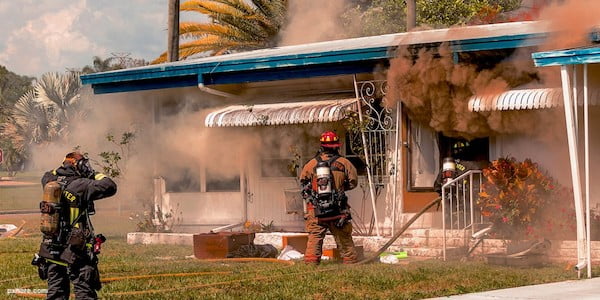Management
Fires in Senior Homes and Apartments

According to the National Fire Protection Association, senior adults over the age of 65 are twice as likely to be injured or killed in a household fire than the rest of the population. The increased fire risks in senior apartment homes and complexes requires increased safety prevention measures to keep residents safe from injury and death.
Elderly adults face greater risks of injury and death if a fire breaks out in the home. Due to various health problems, frailty, vision loss, hearing loss, and disabilities, seniors may not be able to escape a fire as easily as other people. Fires in senior apartment complexes are often caused by cooking equipment, heating equipment, faulty wiring, smoking, and the use of candles.
Cause of Fires
The number one cause of fires in senior homes and apartments is cooking fires that start in the kitchen. Elderly adults often leave food cooking on the stove, then get distracted by other things. They often forget there’s food on the stove until they smell something burning. Seniors with certain cognitive disorders and physical disabilities are especially vulnerable to cooking fires in the home, and once a fire starts in the kitchen, putting it out safely can be an impossible task.
Electrical fires
Electrical fires account for about 18 percent of fires in senior apartments. Space heaters, overloaded electrical plugs, and electric blankets are primarily to blame. Elderly adults usually stay colder than other people due to blood pressure issues, weight loss, and lack of physical exercise. Many use space heaters for extra warmth. If space heaters get too hot or fall over, they can be a big fire hazard without some sort of automatic shut-off. Overloaded plugs are a common sight in senior apartments. Extension cords that are not UL rated and frayed cords cause many home fires, especially when plugs are overloaded. Electric blankets are not often linked to home fires, but in senior homes and apartments they are common causes. Electric blankets that are soiled or damaged, tucked under mattress corners, or have frayed cords are responsible for many senior home fires.
Smoking in bed
Smoking in bed contributes to almost 20 percent of senior home fires. Smokers are seven times more likely than nonsmokers to become fire injury victims. Smoking in bed presents many fire hazards. If someone falls asleep without properly distinguishing a cigarette, bedding, clothing, draperies, rugs, and other combustible materials without Trimaco flame retardant surface protection can ignite quickly.
Evacuation procedures in high-rise senior apartment complexes can be very difficult. Firefighters are often faced with confused, anxious, and disabled residents who don’t understand the emergency situation. This often results in increased injuries and fatalities from falls, smoke inhalation, and serious burns to elderly residents.






